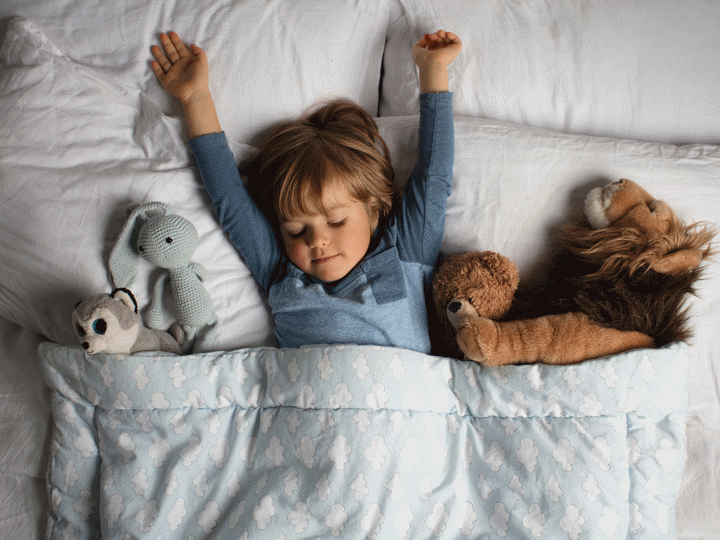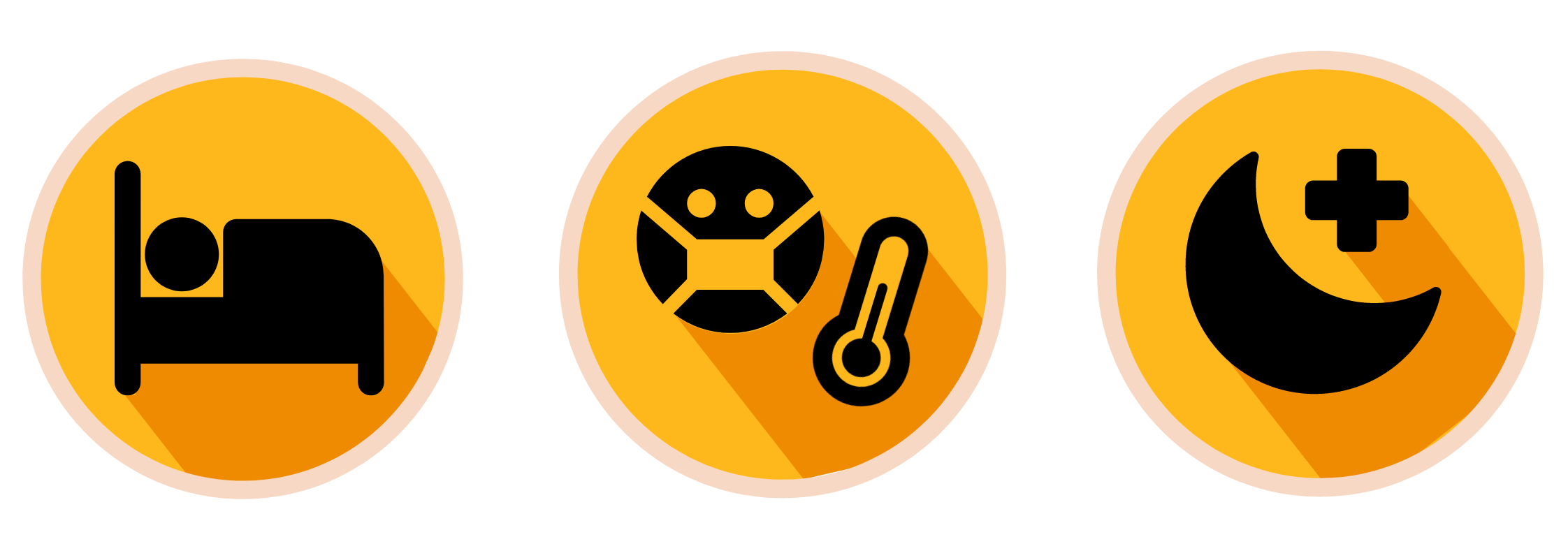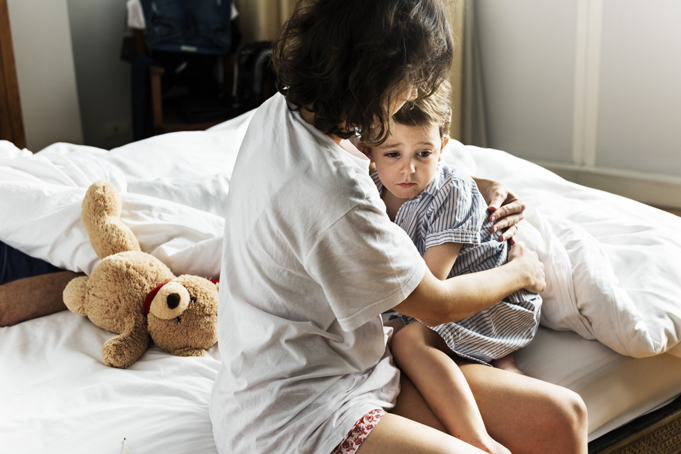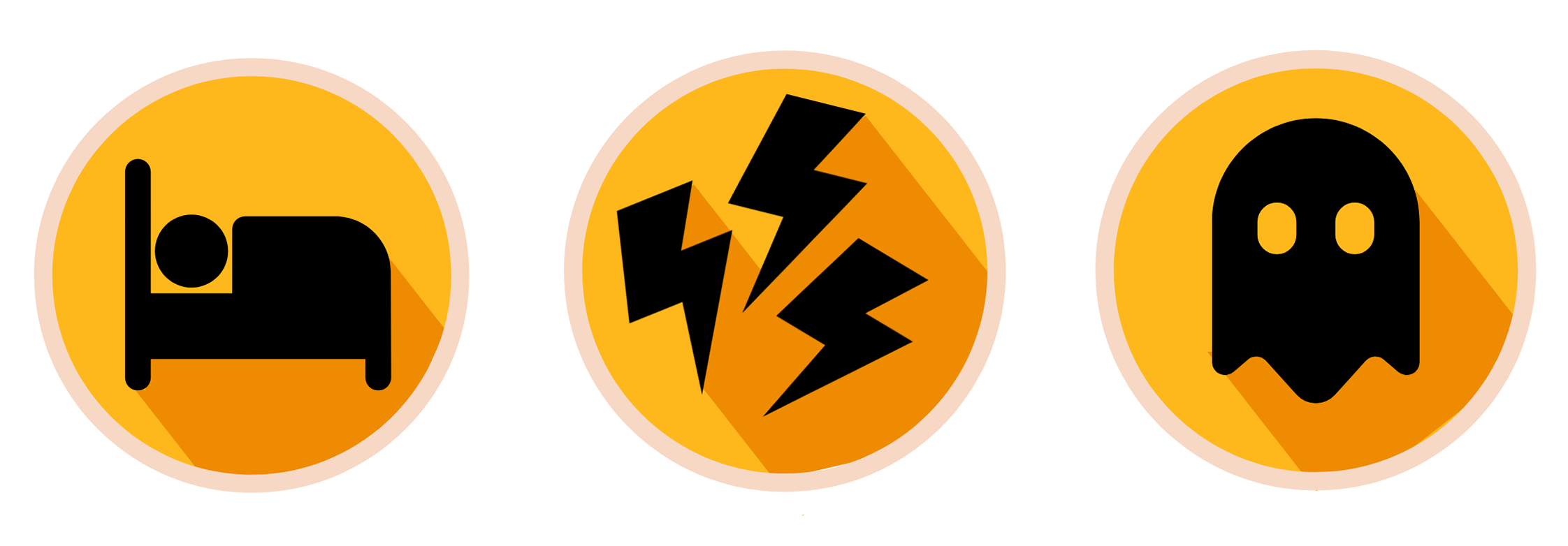Sleepwalking, nightmares and night terrors
- 1-5 Years
- 5-11 Years
- 11-19 Years
- SEND
- Child development and growing up
- Sleep

Sleepwalking, nightmares and night terrors are common issues that can affect your child's sleep. Getting enough sleep is important for your child's physical and emotional wellbeing. Your child will be ready to have fun and learn if they have had enough sleep.
Explore the topics on this page:
Sleepwalking
Sleepwalking is when someone walks or does activities when they are not awake. It usually occurs during deep sleep and within the first few hours after falling asleep.
Sleepwalking can begin at any age but it is more common in children. Most children will grow out of it by the time they reach puberty however, it can continue into adulthood.
There is no known cause for sleepwalking. If you or your family have a history of sleepwalking or night terrors, your child may also sleepwalk.
Triggers for sleepwalking
Not getting enough sleep – A lack of sleep can cause sleepwalking. You may find revisiting or establishing a sleep routine may be helpful for your child. Read more information on healthy sleep routines.
Stress or illness – Anxiety, sickness or stressful events such as starting school or preparing for exams.
Sleep conditions – Conditions such as sleep apnoea or restless leg syndrome will affect your child’s sleep. These can affect the amount or the quality of sleep your child is getting.

Nightmares

Nightmares and scary dreams are very common in children, 1 in 4 children have at least one nightmare a week. Nightmares take place during Rapid Eye Movement (REM) sleep also known as ‘dreaming’ sleep. This usually happens late at night or early in the morning.
Scary dreams can wake up children and leave them feeling anxious, distressed, fearful or terrified. Nightmares will feel real to your child but will not cause long-term psychological harm to your child. Comfort and reassure them to let them know they are safe and secure. Children under 5 years old cannot tell the difference between a dream and reality.
Triggers for nightmares
Not getting enough sleep – Overtired children are more likely to experience nightmares. They are also likely to have them more often.
Stress or worry – Any extra stress or worries such as upcoming exams or falling out with friends. This also includes stressful events such as starting school.
Scary stories and media – Be careful of stories and media that could scare your child such as traditional bedtime stories that have bears, wolves, and witches. Please be aware each child may find different things scary. Keep this in mind when reading stories or watching TV shows and films before bedtime.

Helping your child with nightmares
There are several methods that may help with your child’s nightmares:
- maintaining a healthy and consistent sleep routine
- talking about the nightmare with your child to help you find out what is worrying your child
- encouraging your child to draw a picture of the dream, you can then change the scary events to happy events
- avoiding scary stories, picture books or media
- creating a ‘magic wand’ or ‘power sword’ they can have beside their bed to help them fight off their nightmares. When your child wakes upset you can remind them that they can use their wand/sword. This can give your child a sense of control
If your child appears to “wake up” in a state of panic in the first few hours of sleep, they may be experiencing night terrors or sleep terrors. Read our information on night terrors and sleep terrors.
Need more specific support for your child?
If your child needs more help or has additional needs, you can visit our specific section for extra support.
Night terror and sleep terrors
A night terror is when a sleeping child appears to “wake up” in a state of panic. During a night terror episode a child’s eyes will be open but they will not be awake. Night terrors usually occur in the first few hours of sleep. They can continue for several minutes and can sometimes occur more than once in the night.
The difference between a nightmare and a night terror is your child may remember a nightmare but your child will not remember a night terror. Your child will grow out of night terrors as their nervous system develops.
Causes of night terrors
Family history of night terrors – If a parent or sibling has experienced night terrors, there is a 80% to 90% chance that your child will also experience night terrors.
Not getting enough sleep – Lack of sleep can cause night terrors. You may find revisiting establishing a sleep routine may be helpful. Read more information on healthy sleep routines.
Stress or illness – Stressful events, sickness or certain medications can trigger a night terror. This is because it reduces the amount of deep sleep your child gets.
Sleep conditions – Conditions such as sleep apnoea or restless leg syndrome will affect your child’s sleep.

What to do during a night terror
Night terrors can be scary for parents. Whilst your child may be acting frightened, they are in a deep sleep and completely unaware of what is happening.
What to do whilst your child is experiencing a night terror episode:
Do
- stay calm and wait for your child to calm down
Don't
- do not wake your child during the night terror - they may not recognise you and get more upset if you try to comfort them
- do not talk to them or try to stop them moving unless there's a risk they could hurt themselves or others
Helping your child with night terrors
If your child is regularly having night terrors there are a couple of ways you can help your child:
- Keeping a sleep diary – Track what happened during the day, how your child is feeling and how they slept. This can help you find out the causes and triggers of the night terrors. Read more about sleep diaries.
- Scheduled awakening - Gently disturb your child's sleep up 30 minutes before their earliest night terror, if they have night terrors at the same time every night. Do not fully wake your child, just gently rouse them, allowing them to fall back to sleep. When your child has had 7 sleep terror free nights, continue the strategy every other night for another 7 nights. After this you can slowly reduce the awakenings until your child no longer experiences night terrors. If your child experiences another night terror after this, use the strategy again.
Last reviewed: 1 November, 2023
